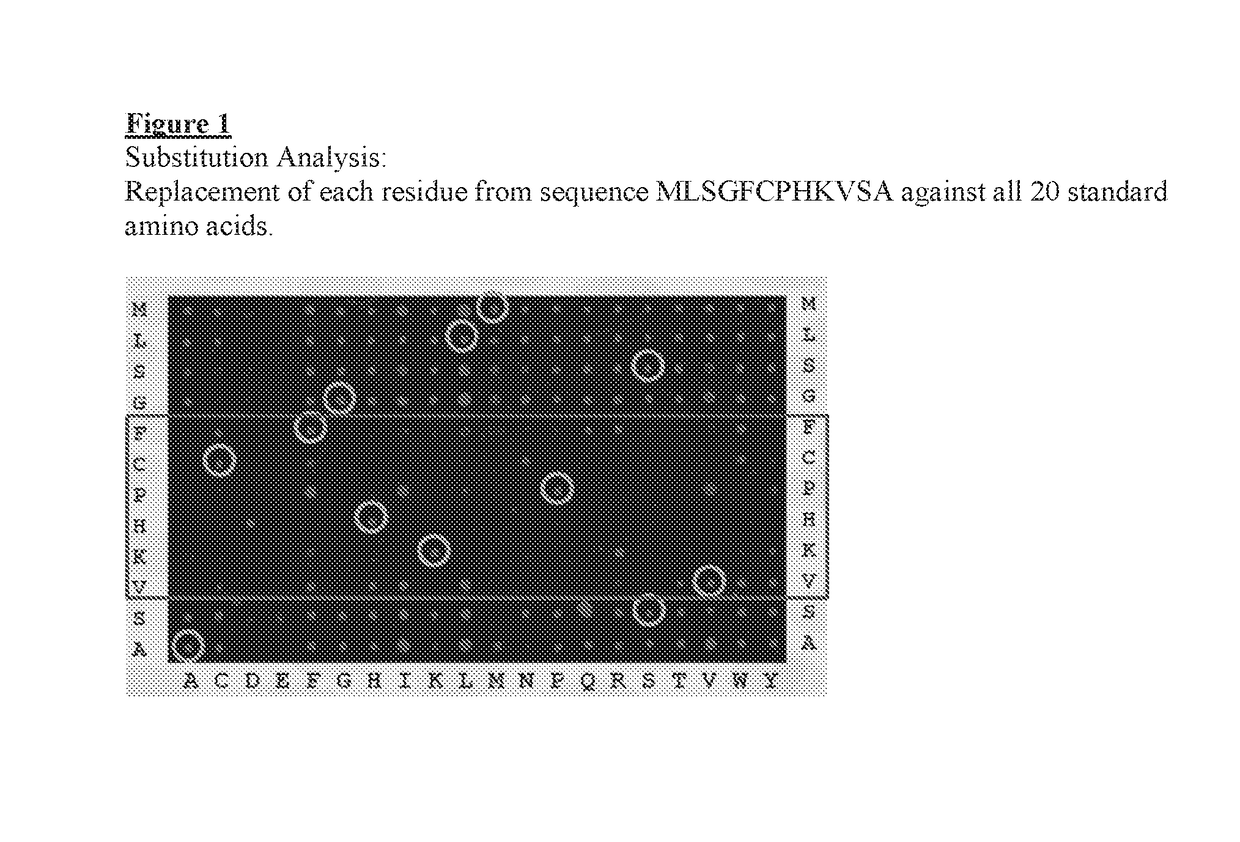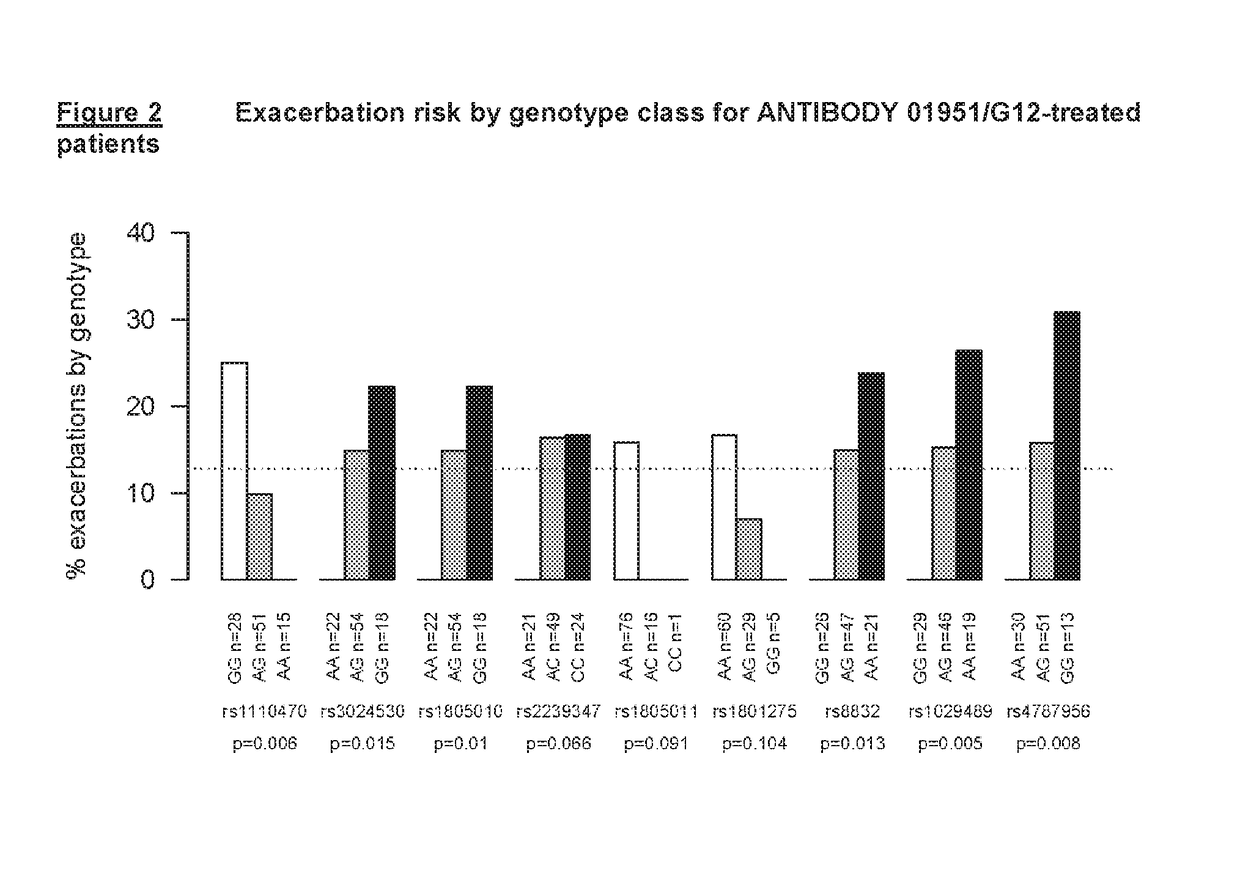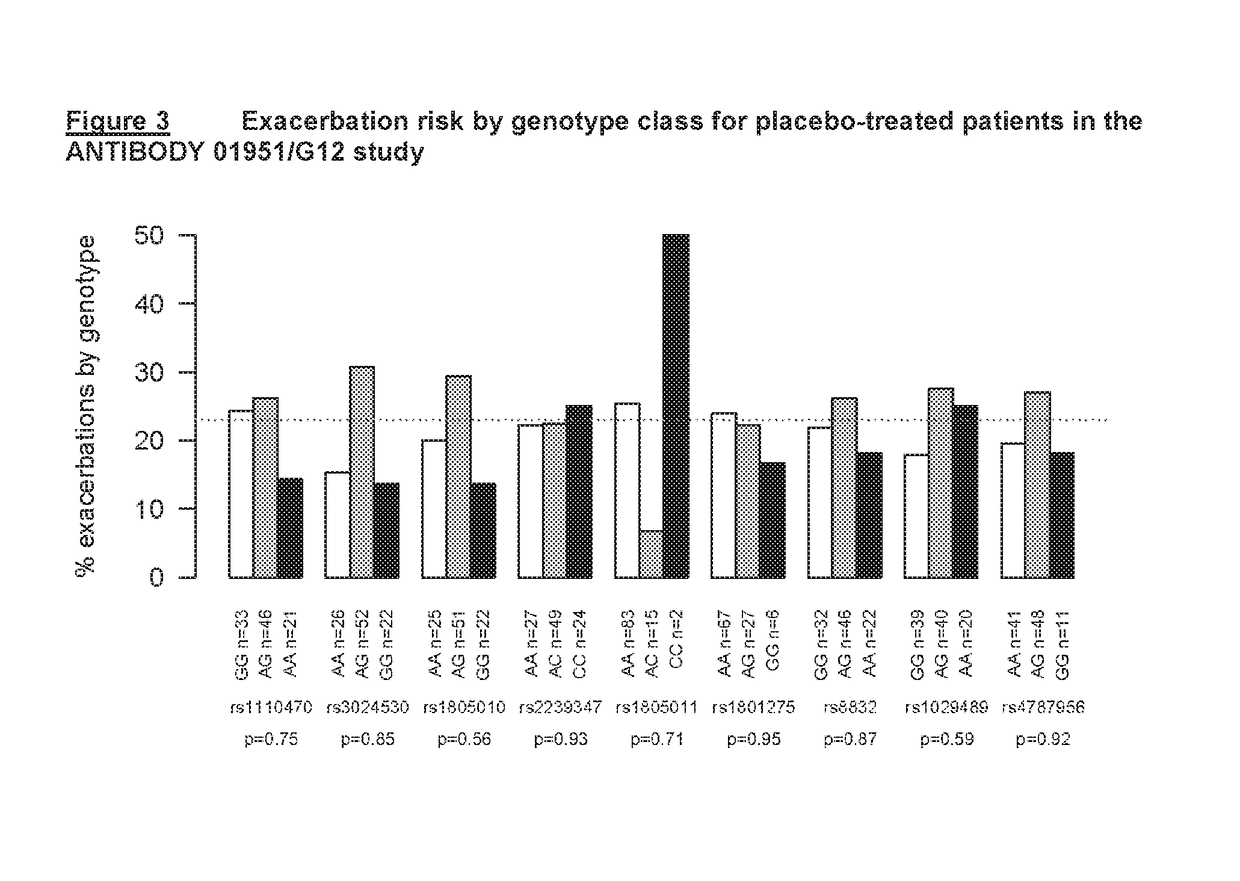Methods of selectively treating asthma using IL-13 antagonists
a selective treatment and asthma technology, applied in the field of selective treatment of asthma using il-13 antagonists, can solve the problems of significant unmet medical needs and major global health burden of asthma, and achieve the effects of minimizing the risk of il-13 antagonism, reducing the frequency of asthma exacerbations, and maximizing the benefi
- Summary
- Abstract
- Description
- Claims
- Application Information
AI Technical Summary
Benefits of technology
Problems solved by technology
Method used
Image
Examples
example 1
Identification of IL-13 Antagonists
[0180]For the purposes of the invention, IL-13 antagonists that compete with a specified anti-IL-13 antibody set forth herein, including antibody 01951 / G12 (SEQ ID NO:14 and 16) for binding to IL-13 can be identified by methods known in the art, and further as described in the following methodology.
[0181]All experiments are performed using a Biacore T200 instrument. Biacore T200 Control software and Biacore T200 Evaluation software are used for the control and analysis of experiments, respectively.
[0182]PART 1: The anti-human IL-13 antibody ANTIBODY 01951 / G12 is immobilized to a CM5 sensorchip surface using the amine coupling method. Briefly, the surface of the measuring flow cell is activated with EDC / NHS, followed by a 700 second addition of 50 μg / mL ANTIBODY 01951 / G12 in 10 mM sodium acetate pH 4.5. Based on previous experiments, these buffers and injection times are sufficient to allow saturation of the chip surface with ANTIBODY 01951 / G12, tho...
example 2
Identification of the Antibody 01951 / G12 Epitope Residues:
Peptide Mapping:
[0185]The sequence of IL-13 was probed at the peptide level to identify the binding site with ANTIBODY 01951 / G12. Thirty four 15-mer peptides were synthesized in order to scan the entire sequence with 12 residue overlap starting from the N-terminus. The synthesis of the peptides, preparation of the peptide-array slides, incubation with antibodies and data analysis where done as described by Maksimov et al. (PLoS ONE 7(3): e34212).
[0186]The results are shown in Table 4. The binding signal intensity (light unit) observed is reported for each peptide, in column 1 against a control unrelated human antibody and in column 2 against ANTIBODY 01951 / G12. Signals above 10000 Light Units are considered as being significant. 2 overlapping peptides in the set of the 34 peptides produced a signal above that threshold, peptide 22 (TQRMLSGFCPHKVSA) (SEQ ID NO: 31) and peptide 23 (MLSGFCPHKVSAGQF) (SEQ ID NO: 32). The overlapp...
example 3
Pharmacogenetic Analysis of IL4-Rα SNPs and Discovery of AIR Markers 1-9:
[0190]ANTIBODY 01951 / G12 is a fully human IgG1 / κ monoclonal antibody. CQAX576A2207 was a Phase II clinical study to evaluate the effectiveness and safety of ANTIBODY 01951 / G12 in patients with moderate to severe persistent asthma following multiple doses, when added to existing asthma therapy.
[0191]To assess associations of several single nucleotide polymorphisms (SNPs) in the IL4-Rα gene and risk of asthma exacerbation in patients treated with ANTIBODY 01951 / G12, DNA was collected from patients enrolled in the CQAX576A2207 trial and nine SNPs in the IL4-Rα gene were genotyped in these samples. Statistical tests of association were performed to assess the evidence for association of SNPs in the IL4-Rα gene with risk of asthma exacerbation, as well as with other asthma clinical endpoints, in patients treated with ANTIBODY 01951 / G12.
[0192]In this manner, a pharmacogenetic analysis was undertaken, with the objecti...
PUM
| Property | Measurement | Unit |
|---|---|---|
| volume | aaaaa | aaaaa |
| weight | aaaaa | aaaaa |
| weight | aaaaa | aaaaa |
Abstract
Description
Claims
Application Information
 Login to View More
Login to View More - R&D
- Intellectual Property
- Life Sciences
- Materials
- Tech Scout
- Unparalleled Data Quality
- Higher Quality Content
- 60% Fewer Hallucinations
Browse by: Latest US Patents, China's latest patents, Technical Efficacy Thesaurus, Application Domain, Technology Topic, Popular Technical Reports.
© 2025 PatSnap. All rights reserved.Legal|Privacy policy|Modern Slavery Act Transparency Statement|Sitemap|About US| Contact US: help@patsnap.com



